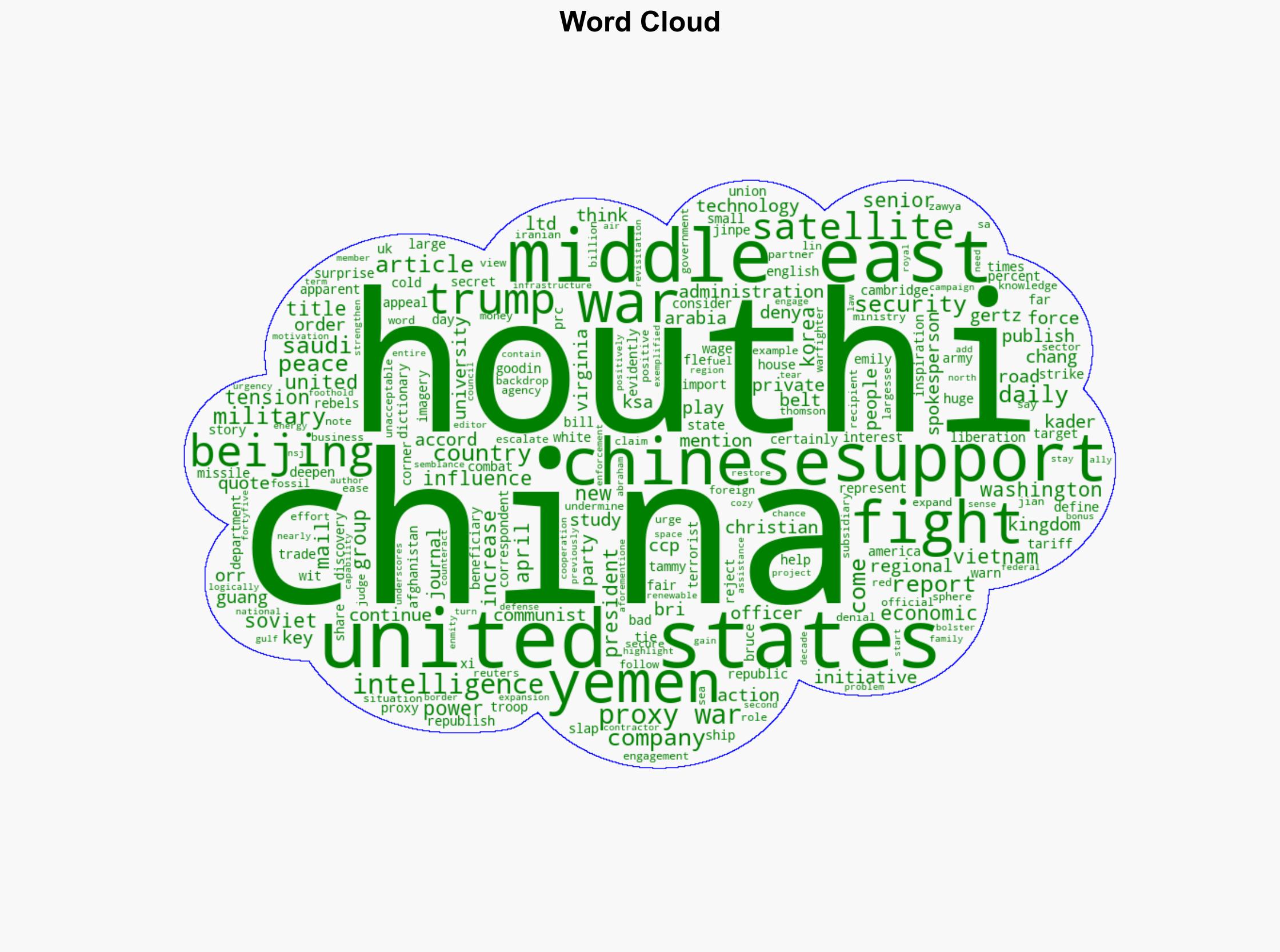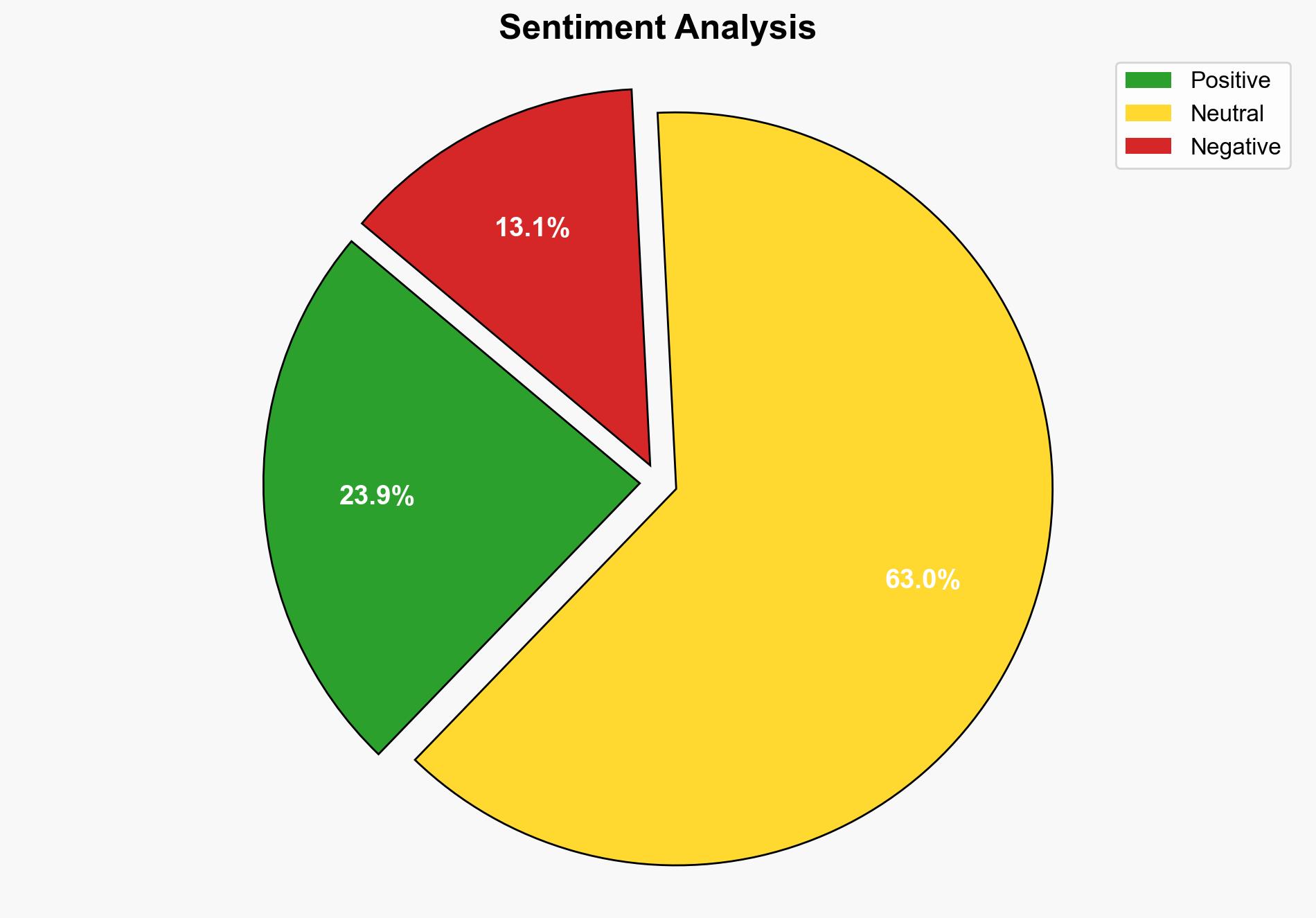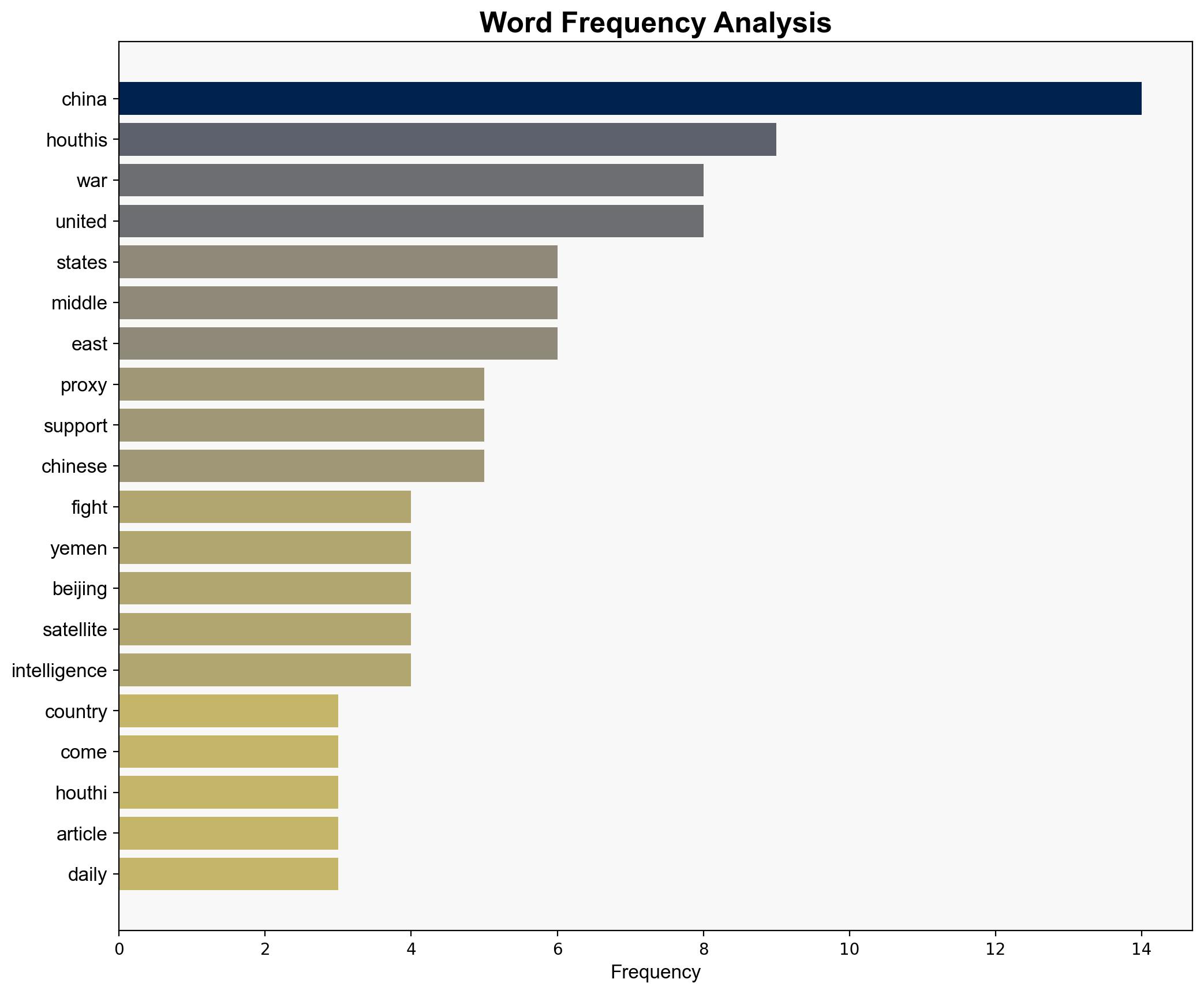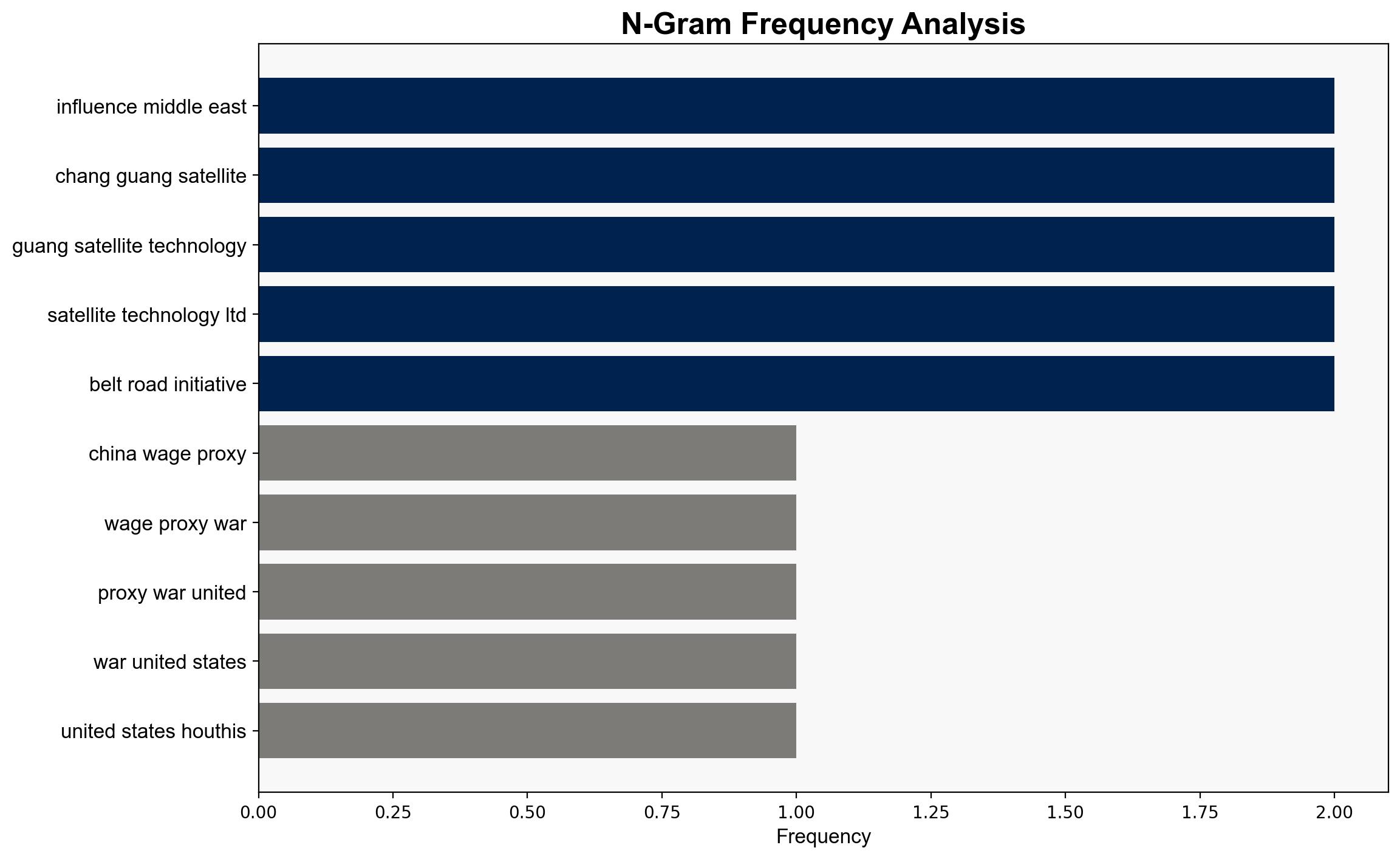Is China Waging a Proxy War on the United States Via the Houthis – The National Interest
Published on: 2025-04-24
Intelligence Report: Is China Waging a Proxy War on the United States Via the Houthis – The National Interest
1. BLUF (Bottom Line Up Front)
This report assesses the potential involvement of China in supporting the Houthi rebels in Yemen, potentially as a proxy strategy against the United States. Key findings suggest that China’s actions, including alleged satellite intelligence support, align with its broader strategic goals in the Middle East. Recommendations include enhancing regional alliances and strengthening space capabilities to counteract China’s influence.
2. Detailed Analysis
The following structured analytic techniques have been applied to ensure methodological consistency:
SWOT Analysis
Strengths: China’s economic leverage through the Belt and Road Initiative (BRI) enhances its regional influence.
Weaknesses: Dependence on regional stability for BRI success may limit overt military engagements.
Opportunities: Expanding influence in the Middle East through strategic partnerships and infrastructure investments.
Threats: Potential backlash from the United States and its allies, risking economic and diplomatic tensions.
Cross-Impact Matrix
The interplay between China’s economic initiatives and regional conflicts could exacerbate tensions. The involvement of external powers like the United States may create feedback loops, increasing instability and competition for influence.
Scenario Generation
Scenario 1: Increased Chinese support for the Houthis leads to heightened US-China tensions, impacting global trade.
Scenario 2: Diplomatic efforts succeed in de-escalating regional conflicts, reducing the need for proxy engagements.
Scenario 3: Regional alliances shift, with China gaining stronger footholds through economic incentives.
3. Implications and Strategic Risks
China’s potential proxy engagement via the Houthis poses risks of regional destabilization and increased US-China tensions. The strategic use of satellite technology underscores the need for enhanced cybersecurity and space defense measures. Economic dependencies through the BRI could be leveraged to influence regional politics.
4. Recommendations and Outlook
- Enhance intelligence-sharing and cooperation with regional allies to monitor and counteract Chinese influence.
- Invest in space and cybersecurity capabilities to mitigate risks from satellite intelligence support to hostile entities.
- Scenario-based projections suggest maintaining diplomatic channels to manage potential escalations (best case) and preparing for increased regional conflicts (worst case).
5. Key Individuals and Entities
Christian Orr, Emily Goodin, Tammy Bruce, Lin Jian, Sa Kader, Bill Gertz
6. Thematic Tags
(‘national security threats, cybersecurity, counter-terrorism, regional focus’, ‘cybersecurity’, ‘counter-terrorism’, ‘regional focus’)





